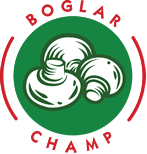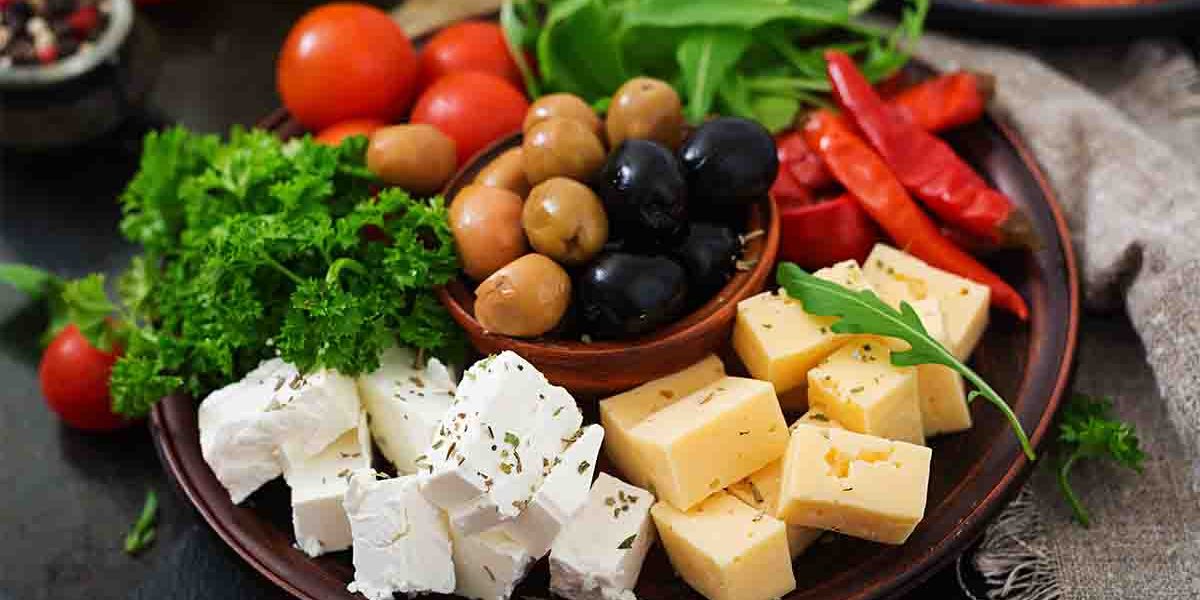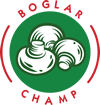Healthy, tasty, slimming, ideal for fitness, varied and not difficult to follow – yes, that’s the Mediterranean diet. Now part of the UNESCO World Heritage, the Mediterranean diet, which is now internationally renowned, is not just a ‘what to eat, what not to eat’ diet, but also a cultural tradition: it involves eating fresh, home-grown herbs on a daily basis, buying from small local producers and above all enjoying the preparation, serving, sharing and eating of food collectively with friends and family.
If we were to describe it in one sentence, it would go something like this: eat local, eat fresh, and replace meat, sugar and saturated fat-rich dishes with dishes rich in vitamins, nutrients and protein. Fortunately, this does not mean that we can now say goodbye to goodies and munch on lettuce leaves or carrots like a rabbit in a flavour cage. The Mediterranean diet is not only healthy, but also varied and delicious!
What’s even better is that mushroom lovers don’t have to change their eating habits much, as mushrooms are a perfect match for the antioxidant-rich Mediterranean diet.
But what does the traditional Mediterranean diet consist of? Basically, it is based on the consumption of foods that are grown and/or available in the countries bordering the Mediterranean Sea. The people who live there eat a wide variety of vegetables and fruits, whole grains, oilseeds, olives, legumes, lots of fish and seafood, which are grown locally and mostly freshly prepared. Olive oil is the main source of fat in this diet, and dairy products, especially cheese and yoghurt, are also consumed in small quantities, rather as a flavouring.
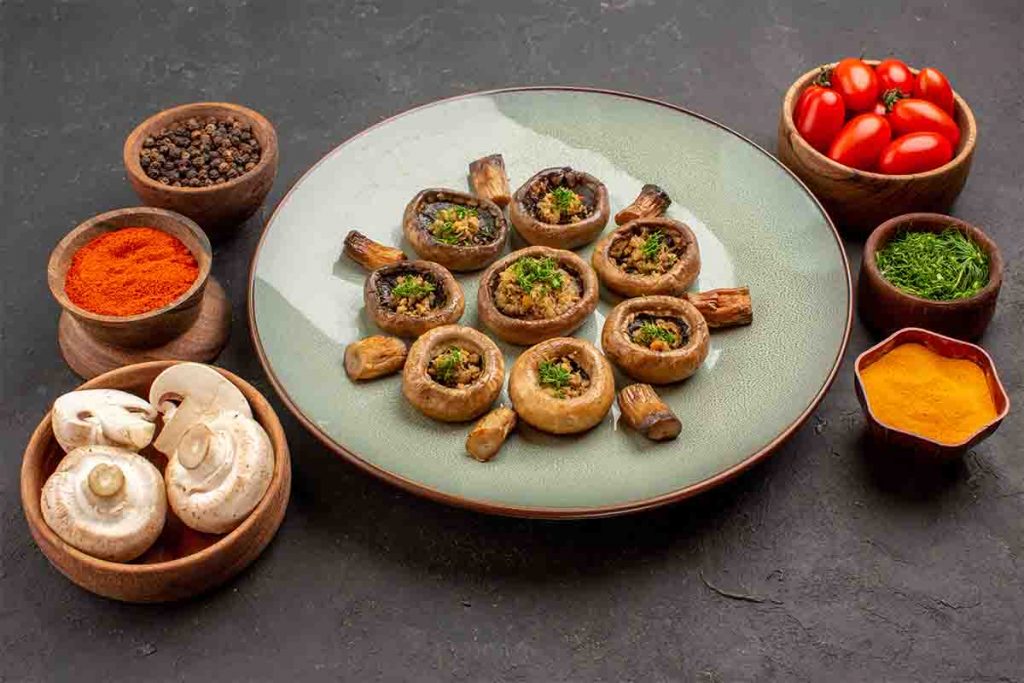
In the Mediterranean diet, seasoning is of particular importance. An important role is played by fresh herbs such as basil, oregano, rosemary, parsley, coriander, thyme, etc., which are grown in pots in most Mediterranean households and are always handy for cooking. At the same time, the Mediterranean diet avoids, or at least drastically reduces, sugary foods, soft drinks, processed and preserved meat products containing additives, white flour and hydrogenated vegetable fats.
Mushrooms can be used naturally as a partial or even total substitute for meat. Mushrooms are a perfect complement to the dominant elements of the Mediterranean diet, such as tomatoes or seafood, and can be paired well with other ingredients, but if you are more of a purist, there is no more ingenious and simpler Mediterranean dish than mushrooms sautéed in olive oil, served with a tomato, basil and garlic dressing, and accompanied by a small loaf of artisan bread made with durum flour and sourdough.
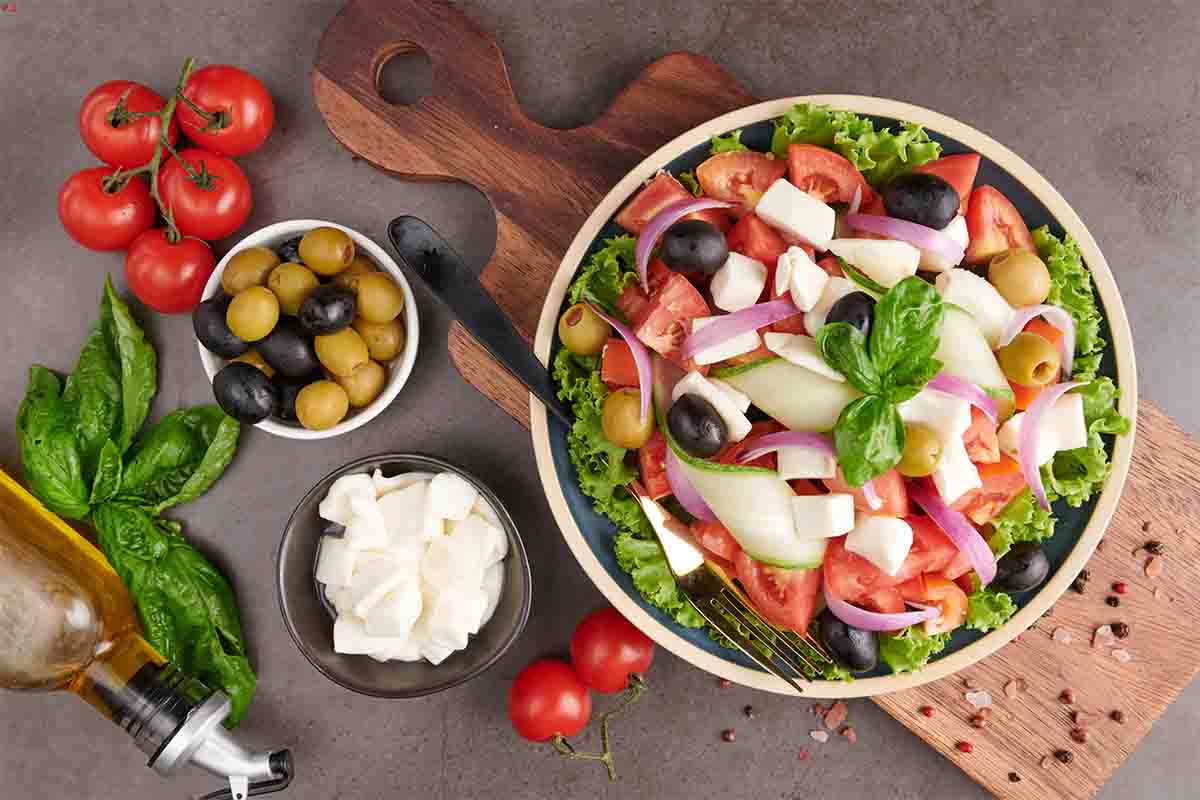
But the Mediterranean diet is no longer just a place- and culture-specific diet, as it has conquered the world. Its international popularity is also due to the fact that you don’t have to give up the pleasure of life and food to practice it. Nor should we give up bread, pastries or spaghetti, but instead of products traditionally made from white flour, we should choose those made from durum wheat, which are higher in fibre and slower to raise blood sugar levels. We can also eat foods made from wholemeal flour and brown rice instead of white.
The Mediterranean diet also allows a few glasses of quality wine a week, but we should avoid strong alcoholic drinks and beer.
Another advantage of the diet is that those who adopt it have significantly lower rates of certain health problems, such as cardiovascular disease and cancer, and this is clearly linked to their diet. The dietary intake of antioxidants is high and can help to reduce the risk of cancer, control diabetes and may even be beneficial in preventing depression.
In addition to the composition of the Mediterranean diet, there are a few other rules to follow in order to be a more authentic and effective ‘Mediterranean dieter’. The first rule is never to skip breakfast, which should be rich in fibre and carbohydrates. The second rule is to drink at least two litres of water a day. The third is to exercise regularly. The fourth and perhaps most important: take a more relaxed pace of life, don’t watch TV, work or sit at the computer while eating, never eat alone, but with family and friends, and take time to do so.
